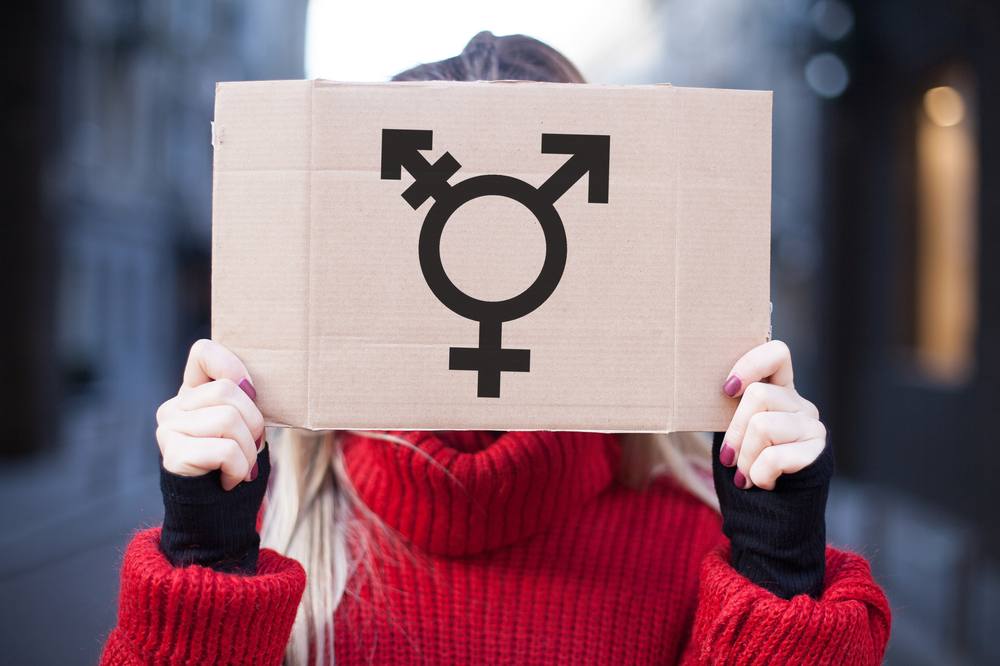Transgender people have always been a part of the screen industry in Australia, but it’s hard to find exact data on just how many screen workers identify as trans – instead they tend to get lumped in with broader stats on LGBTQIA+ employees.
According to a 2016 Screen Australia report, more than one in 10 Australians identify with a diverse gender identity. In the same study, it was found that only two of the 88 LGBTQI characters in Australian TV drama at the time were transgender.
The ABC has since made a concerted effort to rectify this, first in 2017 with the release of First Day, a live-action drama about a character coming out as transgender, and then, in 2019, by including Gender Affirmation Leave (also known as transition leave) in their employee policy.
Read: Making Australia’s first show starring a transgender kid
In brief, this policy means employees who identify as transgender and wish to affirm their gender identity will be able to take paid leave for it. The ABC was the first broadcasting company in Australia to officially offer this.
As the lives of transgender people are increasingly scrutinised thanks to some frankly shocking op-eds and election talking points, we’re looking into Australia’s TV broadcasters and the safety nets they have in place for making trans people feel welcome (or, not so much). First up, the national broadcasters:
ABC
ScreenHub spoke to Cinda Viranna, the ABC’s head of Indigenous, Diversity and Inclusion, about the company’s Gender Affirmation Leave policy policy.
Can you explain what gender affirmation leave is, in the context of the ABC?
‘The ABC provides Gender Affirmation Leave for employees (other than casual employees) that identify as transgender and who are undertaking a Gender Affirmation. They will have access to up to ten days’ paid Gender Affirmation Leave, which counts as service for all purposes, and up to 12 months’ unpaid Gender Affirmation Leave. Unpaid Gender Affirmation Leave does not count as service. The paid leave provided may be taken as consecutive or single days, or as a portion of a day.
‘In this context, “Gender Affirmation” means that you identify as transgender (in that your gender identity does not match your birth sex) and you wish to adopt a gender identity that is different to your birth sex.’
How do you hope the leave policy will change the broadcast industry?
‘The ABC is proud to support diversity and inclusion in our workforce. This includes supporting LGBTQIA+ staff. In striving to be an inclusive employer, we recognise that we need to represent the diversity of our community and benchmark ourselves against other organisations and government agencies. This includes ensuring that employees have access to gender affirmation leave.
‘We are hopeful that our work on inclusion has impact in the broader industry. The ABC has joined forces with a broad range of organisations to work on diversity and inclusion initiatives, and we are a proud member of the Australian Screen Diversity and Inclusion Network.’
(The Screen Diversity and Inclusion Network – SDIN – has the broad focus of increasing the diverse talent that shapes the Australian screen industry. Other members include Foxtel, the Australian Film Television and Radio School,\, SBS, Network Ten, Screen Producers’ Australia, Screen Australia, Create NSW, Film Victoria, Screen Queensland, Screenwest, the South Australian Film Corporation, Screen Territory, Screen Tasmania and ScreenACT.)
Read: Julie Peters, ABC: trans stories on screen are getting better – at last
What was the decision-making process like in implementing gender affirmation leave into the ABC employee policy?
‘The ABC negotiated to have gender affirmation leave included in the ABC Enterprise Agreement 2019–2022. In taking this step, the ABC looked at what other government agencies and organisations had in place and we’ve benchmarked against them. Gender Affirmation polices including paid leave is recognised as a leading practice and many organisations are adopting this to support transgender employees.
‘The introduction of gender affirmation leave was done with the full support of ABC Pride, the ABC’s employee network group which supports LGBTQIA+ inclusion in our workplace. At the ABC, we pride ourselves on creating an inclusive culture. We have a diversity and inclusion plan that sits alongside our employment agreement, and we report on what we do in order to create an inclusive culture for our staff at the ABC on an annual basis.’
Why is it important that this kind of leave is paid?
‘The adoption of gender affirmation leave aims to provide not only financial support but also time away from the workplace without the fear of job loss for transgender people who are affirming their gender. This also is a strong message of inclusion and support that the ABC is a safe and inclusive workplace for transgender and all diverse individuals.’
Do you know if the ABC is the first broadcaster in Australia to offer paid transition leave?
‘ABC Introduced in 2019 Enterprise Agreement however we are aware that SBS also offers this leave. However, this type of initiative is by no means unique – companies that have gender affirmation policies in place include IBM, Accenture, ANZ, Westpac and Deakin University and other government agencies like the Victorian Public Sector.’
What’s your advice to other organisations who may or may not be considering a similar policy for their employees?
‘Making gender affirmation leave available to transgender employees who are affirming their gender is an important signal of inclusion and care for people’s physical and mental wellbeing. It’s one way employees can be encouraged to bring their whole selves to work. This is an important consideration for all employers thinking about introducing a similar policy.’
SBS
SBS does have a gender affirmation policy in place for employees – however, the main difference is in the number of paid leave days offered. Where the ABC offers ten, SBS offers five.
SBS also launched a broader diversity inclusion strategy earlier this year, which focuses on their internal culture and employee experiences, as well as supporting diversity and inclusivity in both on-screen and off-screen roles.
Read: $4.2 billion funding win for ABC and SBS but streaming reforms disappoint
Here we speak to Joshua Griffin, SBS Head of Inclusion and Talent Development.
Can you explain what the SBS gender affirmation policy offers its employees?
‘In 2019, SBS implemented the SBS Gender Affirmation Guidelines. The guidelines have a dual purpose of both clarifying what support is available for employees who might be undertaking a gender affirming process as well as providing help and guidance for managers and colleagues on how to best support their colleagues.
‘We are finding, where a team member has shared that they are going through a gender affirmation, managers and team mates are proactively seeking out and using the guidelines to educate themselves on how best to support that team member’.
What other rights do transgender individuals working at the SBS have?
‘SBS has diversity and inclusion at its heart and we seek to support all our team members – is it an important part of who we are as an organisation. To that end, our trans colleagues enjoy all the same rights as all SBS employees. This includes the right to privacy, the right to take time for medical appointments or counselling/mental health services, the right to be called by the name and pronoun that matches their identity, the right to update their employee data in our systems and the right to use whichever bathroom matches with their gender identity without needing to consciously think about it.
‘We do find, however, that policy alone is never enough. Many gender diverse people have faced obstacles and hurdles in employment previously and so we can’t make assumptions that people automatically know that SBS has these supports available.
‘We actively communicate and engage with staff on these important topics on a regular basis. It’s also one of the reasons that we have specialised Trans and Gender Diverse applicant support as part of our recruitment process – because we know that gender diverse people may not always feel comfortable asking the question of us, so we take the guess work out and let our candidates know that they can be themselves, right from day dot.’
ScreenHub has approached Channels 7, 9 and 10 for interview and is still awaiting responses.





